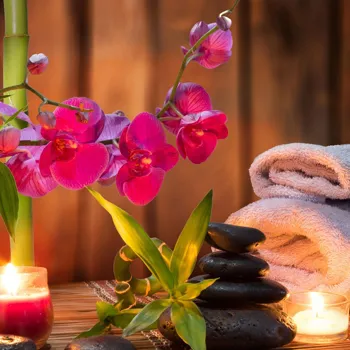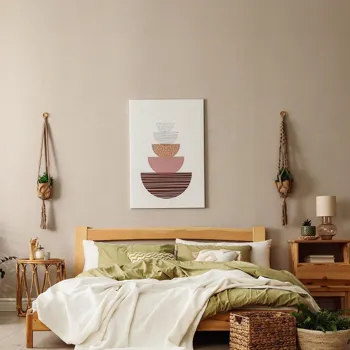Discover 10 Simple Ways to Reduce Stress in Your Daily Life - Prioritize self-care & reclaim your calm!
In today's fast-paced world, stress has become a common companion. From hectic work schedules to managing
family responsibilities, life can feel overwhelming at times. But the good news is, there are simple and effective ways to manage stress and bring more peace into your daily routine.

Let's explore ten such strategies that can help you reclaim your calm and well-being.
Embrace the Power of Deep Breathing
Deep breathing exercises are a fantastic way to quickly calm your nerves. When you're feeling stressed, your breathing becomes shallow and rapid. Taking a few moments to practice deep breathing can help slow your heart rate, lower your blood pressure, and bring a sense of tranquility.

Find a quiet spot, close your eyes, and inhale deeply through your nose, feeling your abdomen expand. Hold for a few seconds, then exhale slowly through your mouth. Repeat this several times, focusing on the rhythm of your breath.
You'll be surprised at how quickly this simple technique can ease your stress.
Prioritize and Plan Your Day
Feeling overwhelmed is often a result of having too much on your plate. One of the best ways to manage this is to prioritize your tasks. Take a few minutes each morning or the night before to create a to-do list. Identify the most important tasks and tackle them first.
Breaking down larger tasks into smaller, more manageable steps can also make them seem less daunting. Planning your day gives you a sense of control and reduces the feeling of being overwhelmed by endless responsibilities.
Connect with Nature
Spending time in nature has a profound impact on our well-being. Studies have shown that exposure to natural environments can lower stress hormones, improve mood, and boost feelings of relaxation. Make an effort to incorporate nature into your daily routine.
Take a walk in a park, sit under a tree, or simply spend some time tending to your garden. Even a few minutes of connecting with nature can make a significant difference in your stress levels. The fresh air and natural surroundings provide a welcome escape from the pressures of daily life.
Practice Mindfulness Meditation
Mindfulness meditation is a powerful tool for reducing stress and increasing self-awareness. It involves focusing your attention on the present moment without judgment.

Find a comfortable place to sit or lie down, and gently bring your awareness to your breath, the sensations in your body, or the sounds around you. When your mind wanders, gently redirect your attention back to your chosen focus.
Even a few minutes of mindfulness meditation each day can help you become more grounded, reduce anxiety, and cultivate a sense of inner peace.
Stay Active and Exercise Regularly
Physical activity is a natural stress reliever. Exercise releases endorphins, which have mood-boosting effects. Find an activity you enjoy, whether it's walking, dancing, swimming, or playing a sport. Aim for at least 30 minutes of moderate-intensity exercise most days of the week.
Regular exercise not only improves your physical health but also helps to clear your mind, reduce tension, and improve your overall sense of well-being. Even a short burst of activity, like a brisk walk during your lunch break, can make a difference.
Get Enough Sleep
Sleep deprivation can significantly increase stress levels. When you're tired, you're more likely to feel irritable, anxious, and overwhelmed. Aim for 7-8 hours of quality sleep each night. Establish a regular sleep schedule by going to bed and waking up at the same time each day, even on weekends.

Create a relaxing bedtime routine that includes activities like reading a book, taking a warm bath, or listening to calming music. A well-rested body and mind are better equipped to handle stress.
Limit Screen Time
In today's digital age, it's easy to get caught up in screens. However, excessive screen time can contribute to stress and anxiety. The constant stimulation from electronic devices can overstimulate your nervous system, making it harder to relax and fall asleep.

Set boundaries around your screen use, especially in the evenings. Avoid using electronic devices for at least an hour before bed. Instead, engage in relaxing activities that don't involve screens, such as reading, spending time with loved ones, or practicing a hobby.
Cultivate Gratitude
Practicing gratitude can shift your focus from what's lacking in your life to what you're grateful for. Taking a few moments each day to appreciate the good things in your life can boost your mood, reduce stress, and increase feelings of happiness.
Keep a gratitude journal and write down things you're thankful for each day. You can also express your gratitude to others through words of appreciation or acts of kindness. Cultivating gratitude is a powerful way to reframe your perspective and find joy in the present moment.
Connect with Loved Ones
Social connection is essential for our well-being. Spending time with loved ones can provide emotional support, reduce feelings of isolation, and boost your mood. Make an effort to connect with friends and family regularly, whether it's through phone calls, video chats, or in-person visits.
Share your feelings and concerns with someone you trust, and offer them your support in return. Strong social connections can help you navigate stressful situations and provide a sense of belonging and connection.
Learn to Say No
One of the biggest sources of stress is taking on too much. Learning to say no is a crucial skill for managing your workload and protecting your well-being. It's okay to decline requests that you don't have the time or energy for.

Be assertive and politely decline, without feeling guilty or obligated. Prioritize your own needs and boundaries, and remember that saying no to others is saying yes to yourself. This can free up your time and energy, allowing you to focus on what truly matters.
Remember, managing stress is an ongoing process. Experiment with these strategies and find what works best for you. By incorporating these simple techniques into your everyday life, you can reduce stress, improve your overall well-being, and create a more peaceful and fulfilling life.
Prioritize self-care, and remember that taking care of your mental and emotional health is just as important as taking care of your physical health.
AI Generated Content. Glance/InMobi shall have no liability for the content














